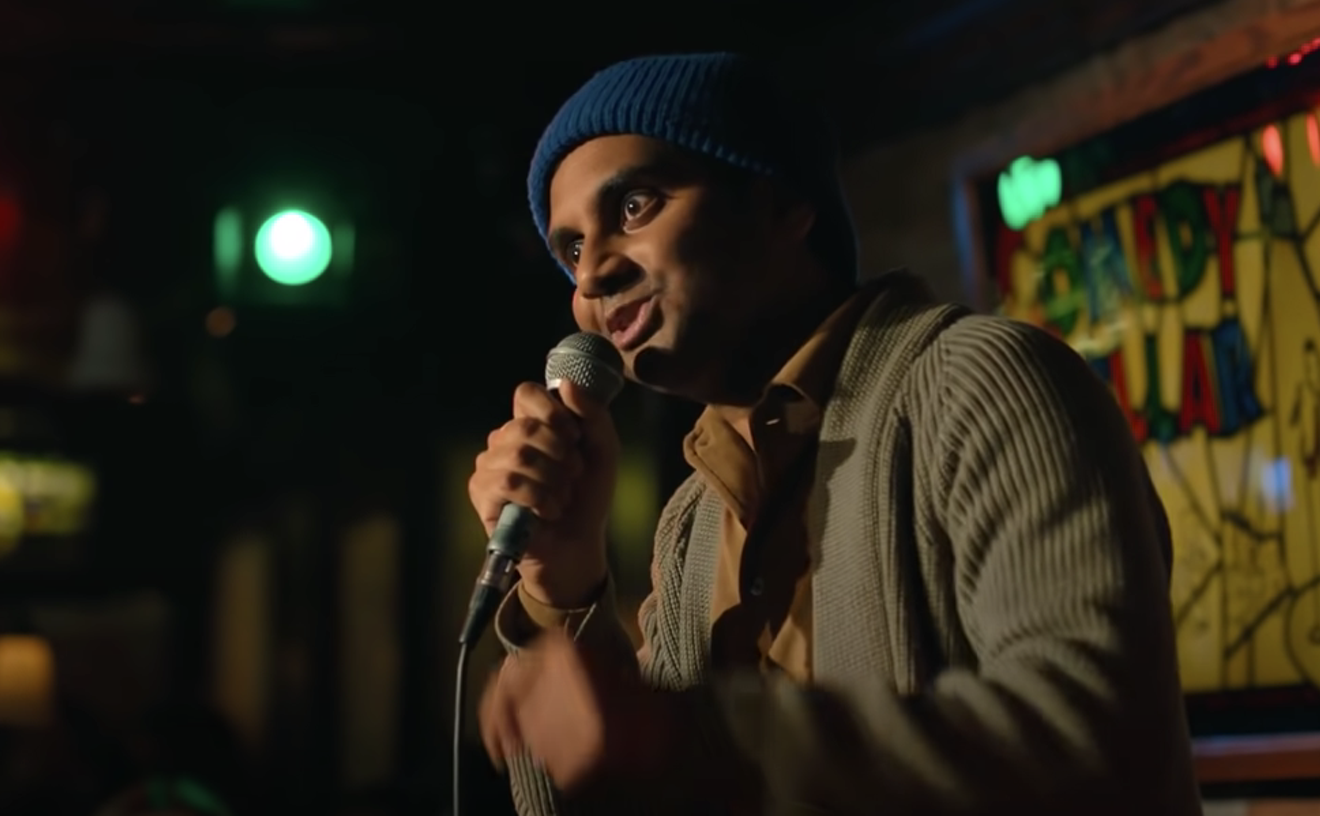Jafar Panahi looks happier than he has in a while — and he's getting out. That's encouraging, and it doesn't mean that his latest act of defiance, the film Taxi, isn't bold. Once again creating cinema in spite of Iran's twenty-year edict forbidding him to do so, this most daring of directors, set free from house arrest, has ventured out into the streets of Tehran to document truths through fiction. (His last two movies, This Is Not a Film and Closed Curtain, were shot within his homes.)
This time, as our amused teddy bear of a tour guide, he tools around his town in a taxi, a camera mounted atop his rearview mirror. He picks up regular Tehranians, invests us in their dramas, then drops them off. He winches the camera, when appropriate, to focus on a passenger, or on the street ahead, where real life clangs on — and where, at any moment, the authorities might turn up. (Panahi never directly addresses that possibility, but the film is steeped in that tension.)
Panahi has always mined art from the seam between actual reality and cinema's failure to approximate it: Witness the ways his simple yet boundlessly complex study The Mirror again and again reveals how easily we get tricked into not seeing artifice. While essential, The Mirror was a grueling picture, ninety minutes of a willful little girl lost in the city, crossing streets against traffic in what feels like real time. Taxi briefly re-stages one such crossing, mentions The Mirror in its dialogue, and investigates many of the same questions about the difference between fiction and documentary. Panahi is playing himself, here, and some passengers recognize him as the famous film director — and they're quick to accept that, yep, after the way he antagonized the powers that be, he might just be driving a taxi these days.
But Taxi is paced like a revue, with a showman's élan. The riders, all played by unidentified amateur actors, initiate comic and dramatic scenes that first reveal certain complexities of Iranian life: A man speechifies about how he wants petty thieves to be hanged, while a woman, a schoolteacher, complains that Iran executes far too many people already. She listens patiently to his invective, but he barely tolerates it when she speaks — he's not cruel about it, he just doesn't seem to understand why she would think he might be expected to listen to her.
A later episode involving a wailing wife and a wounded husband gets at ugly peculiarities of inheritance law, but the film's true center is a series of conversations about film itself. The first of these is with a jolly peddler of illegal DVDs of foreign movies. He's agog to meet Panahi, but not out of love for the art; rather, he's hopeful that a giant of world cinema might help him move some units in the neighborhood. There's something wonderful in the way that these scenes, so breezy and funny, reveal so much: the urgent demand for art films; the improvised underground economy that meets it; the genial disinterest among the profiteers in the art from which they profit.
Taxi turns more self-referential still when an actress playing Panahi's niece discusses all the things she's not allowed to include in the film she's been asked to make for her primary school. Those taboos, of course, correspond to the official Iranian prohibitions Panahi's films always violate: Movies should not show sordid reality. By these last scenes, even viewers uncertain as to whether all of Taxi is staged should be in on Panahi's joking — but the final joke, a fine one, stings either way.
[
{
"name": "Air - MediumRectangle - Inline Content - Mobile Display Size",
"component": "12017618",
"insertPoint": "2",
"requiredCountToDisplay": "2"
},{
"name": "Editor Picks",
"component": "17242653",
"insertPoint": "4",
"requiredCountToDisplay": "1"
},{
"name": "Inline Links",
"component": "18838239",
"insertPoint": "8th",
"startingPoint": 8,
"requiredCountToDisplay": "7",
"maxInsertions": 25
},{
"name": "Air - MediumRectangle - Combo - Inline Content",
"component": "17261320",
"insertPoint": "8th",
"startingPoint": 8,
"requiredCountToDisplay": "7",
"maxInsertions": 25
},{
"name": "Inline Links",
"component": "18838239",
"insertPoint": "8th",
"startingPoint": 12,
"requiredCountToDisplay": "11",
"maxInsertions": 25
},{
"name": "Air - Leaderboard Tower - Combo - Inline Content",
"component": "17261321",
"insertPoint": "8th",
"startingPoint": 12,
"requiredCountToDisplay": "11",
"maxInsertions": 25
}
]











